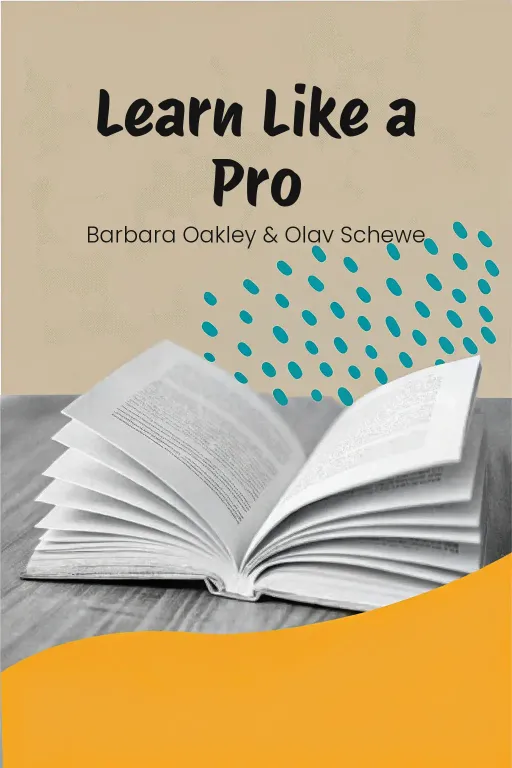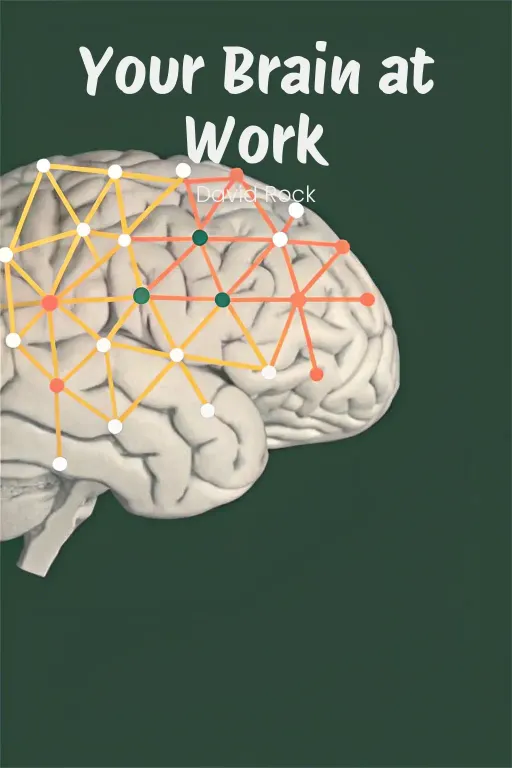
Quiet Your Saboteurs, Unleash Your Sage
Podcast by The Mindful Minute with Autumn and Rachel
Why Only 20% of Teams and Individuals Achieve Their True Potential and how You Can Achieve Yours
Quiet Your Saboteurs, Unleash Your Sage
Part 1
Autumn: Hey everyone, welcome back! Today, we're tackling something pretty crucial: rewiring your brain for success. I mean, honestly, who hasn't been stuck in a loop of negative self-talk or felt like their own thoughts are sabotaging them? Rachel: Autumn, you’re basically describing every Monday morning for me. It's a full-blown mental circus up there – self-doubt juggling anxiety while procrastination watches from the sidelines. Autumn: Exactly! That's what Shirzad Chamine gets into in his book, “Positive Intelligence”. It's all about recognizing that inner battle – the "Saboteurs", those negative thought patterns that trip us up, versus the "Sage", that calm, wise voice that sees opportunities in challenges. Rachel: Okay, so is the Sage the voice that tells me I look great in the mirror even when I haven’t slept in 36 hours? Autumn: Not exactly! The Sage is more about fostering growth, positivity, and resilience. Maybe it's the voice that encourages you to prioritize sleep, or reframe your exhaustion to think about the work you are achieving. Rachel: Hmmm, I guess I need to work on listening to that voice more often! Autumn: I totally get it! The great thing about Chamine’s approach is that it's not just theoretical. He gives you concrete techniques to weaken those Saboteurs, strengthen your Sage, and build what he calls your "PQ Brain muscles." And it's not just about feeling good. We're talking about actual boosts in productivity, better relationships, and even health improvements. Rachel: So, what’s on the agenda for today? Autumn: We’re breaking it down. First, we'll introduce you to the Saboteurs and the Sage – the main characters in this mental drama. Then, we’ll equip you with tools to actually rewire your brain, for a whole new mindset. And finally, we'll look at how this plays out in real life – at work, at home, everywhere. Rachel: Awesome. So, we're learning to master our mental toolkit, acknowledge the negative, embrace the positive, and turn our problems into opportunities. Sounds…ambitious. Autumn: Definitely! Rachel: Alright, well... I'm ready to at least try to understand my inner critic. Let’s dive in and see where this takes us! How about you kick us off, Autumn?
Understanding Positive Intelligence (PQ)
Part 2
Autumn: Okay, let's dive into Positive Intelligence, or PQ. Simply put, PQ is about the balance between positive and negative thoughts. Think of it as a mental fitness score. If, say, 75% of your thoughts are positive and 25% are negative, you're in a “flourishing” state – thriving both at work and in life. If it’s any lower, negativity can take over, impacting everything from creativity to relationships. Rachel: So, it’s kind of like my phone battery, huh? Above 75%, and I can keep going, but anything less, and suddenly everything feels urgent and stressful. But how do you even measure something like that? I mean, it's all in your head, right? Autumn: That’s a great question. It's about observing your thought patterns. Chamine actually uses research-backed tools to gauge how much time you spend in “Saboteur mode” versus “Sage mode.” Plenty of studies show a high PQ correlates to better performance, reduced stress, and stronger relationships. Sales folks with higher PQ scores see about a 37% boost in results. And doctors? They diagnose faster and more accurately because they're calmer and more focused. Rachel: So, it’s like mental efficiency, but for everything? From closing deals to saving lives? That sounds pretty amazing. But what's holding us back? What's stopping us from being up in the 75%? Autumn: Ah, that's where the Saboteurs come in. They're essentially the villains in this mental story. The Saboteurs are those negative thought patterns we've developed – things like fear, self-doubt, blame, or the need to control everything. And the “Judge” is the main one, the Master Saboteur. Rachel: Let me guess, the Judge just hangs over you, like that annoying teacher in grade school, pointing out every little mistake. Autumn: Exactly! And the Judge works in three main ways. First, it criticizes you – telling you, “You're not good enough,” or “You should have done better.” Second, it judges others, which causes conflicts and makes building trust difficult. And third, it judges situations. You lose your job? The Judge says, “This is a catastrophe. There's no coming back from this.” When, in reality, it could be an opportunity to try something new. Rachel: Wait a minute. The Judge isn't just in my head – it's judging everyone else, too, huh? Like some kind of multitasking courtroom drama? Autumn: <Laughing> That’s a perfect analogy. And, if the Judge wasn't bad enough, it has an entire squad of other Saboteurs – the Pleaser, the Stickler, the Avoider, the Controller, you name it. They all undermine you in their own way. Rachel: Okay, break it down. What about the Stickler? Sounds like someone who obsesses over every tiny detail, even if it means missing the big picture, right? Autumn: Precisely. The Stickler is all about perfectionism. People may think, “Being detail-oriented is a strength!” But when it’s driven by fear of failure, it can “really” hold you back. There was a sales professional Chamine mentioned who kept perfecting his proposals, missed key meetings, and lost business as a result. Saboteurs trick you into thinking they're helping, but really, they drain you, cause burnout, or damage relationships. Rachel: Got it. So, they're like that friend who pretends to offer helpful advice, but really just makes you second-guess everything. Autumn: Exactly! And that's where PQ comes in – because once you can spot these Saboteurs, you can stop letting them run your life. But here’s the interesting part: instead of using all your energy fighting those Saboteurs, PQ teaches you to shift your perspective and actually empower the Sage instead. Rachel: Okay, so, now introduce the Sage – our mental superhero. What does the Sage do? Autumn: The Sage represents your wiser, calmer, and more creative self. It views every challenge as a chance for growth. The Sage has five core powers: "Explore," which fuels curiosity; "Empathize," which builds compassion; "Innovate," which drives creative problem-solving; "Navigate," which helps you align with your values; and "Activate," which enables decisive action, free from emotional clutter. Rachel: So, when I’m overwhelmed, the Sage is the voice that says, “Take a breath. What can I learn from this?" Autumn: Exactly! It’s less about blame and panic and more about asking, “What's the opportunity here?” Chamine tells the story of a project manager named David. He was plagued by self-doubt, which was fueled by his Judge Saboteur. As a result, David started micromanaging his team, projecting his fears onto them. Rachel: And his team probably didn't love that, huh? Autumn: Not at all. David’s behavior impacted morale and performance. But once he recognized his Judge and stopped taking its voice as truth, he could shift to the Sage perspective. That shift allowed him to lead with empathy, see setbacks as opportunities, and cultivate a collaborative environment. Rachel: So, David went from overbearing to empowering, just by naming his inner Judge and not letting it control him. Autumn: Pretty much. It’s about training your brain to choose Sage-inspired behavior instead of Saboteur-driven reactions. And research shows that consistent practice can actually rewire your brain in just 21 days – a complete perspective shift. Rachel: Rewire my brain in three weeks? Now you’re saying I can’t even say “That’s just who I am.” as an excuse anymore, huh? Autumn: Exactly!
Strategies to Improve PQ
Part 3
Autumn: So, now that we understand what PQ is, let's talk about actively shifting gears from negative thinking to a more positive mindset. We're going to explore the strategies Shirzad Chamine lays out for improving your Positive Intelligence. We're talking about weakening those Saboteurs, strengthening your Sage, and really building your mental “PQ Brain” muscles for resilience. And these aren't just abstract concepts, they're actually actionable tools that anyone can use to transform stress into opportunity. Rachel: Okay, Autumn, let's get into these Saboteurs. You've portrayed them as these inner villains, but how do we actually start to weaken their hold? Because my inner Judge isn't just going to pack up and leave, is it? Autumn: No, Rachel, you’re right. The Judge and its Saboteur crew aren't going anywhere permanently. But you can definitely reduce their influence. The first step is really about identifying and labeling these negative voices. Just recognizing, "Oh, that's the Judge talking," or "Here comes the Stickler again," helps you create a distance between yourself and those thoughts. Rachel: So, it's like… calling out the party crashers at your mental dinner party "Hey Stickler, I see you hovering around the hors d'oeuvres again!" Autumn: Precisely! Let me tell you a little story from the book. There was this guy, David, who was constantly being attacked by his overactive Judge. After a presentation, he made a mistake, and his Judge just totally took over, replaying the error endlessly and convincing him he was worthless. This negativity trickled into his work relationships. He started micromanaging his team because his own self-doubt was coloring how he saw everyone else. Rachel: So not only is the Judge needling him personally, but it turns him into the workplace version of Big Brother, watching over everyone's shoulder. Autumn: Exactly. But David decided to push back by naming and labeling the Judge every time it popped up. By externalizing that voice, by seeing it as an adversary, not as his inner truth, he started to reframe those moments of self-doubt as opportunities for growth. And over time, his confidence came back, and he built better relationships with his team. Rachel: Hang on a second. You're saying that all he had to do was name the Judge? That seems... almost too simple. Autumn: Well, on the surface, yes, but think of it like pushing back against a bully. When you shine a light on that voice, it loses its ability to operate unchecked in the shadows. But you don't just stop there. You also have to debunk the Saboteurs' lies. Rachel: Right, like when the Stickler insists that "Perfection is the only way to succeed," but in reality, you're missing deadlines and just burning yourself out. Autumn: Exactly. Another example from Chamine is about a professional who got so caught up in fine-tuning a team proposal that he missed the presentation deadline altogether. Recognizing that perfectionism was actually hurting rather than helping allowed him to strive for balance instead of just burning out. Rachel: Okay, I'm with you so far, name the Saboteurs, ignore their bogus stories. But now, I need some backup. How do I power up this Sage you've been talking about? Autumn: Strengthening your Sage requires really tapping into its five core powers: Explore, Empathize, Innovate, Navigate, and Activate. Let's start with empathy since it's really foundational. You can't really access your Sage if you're not first kind to yourself and to others. Rachel: Okay, but how does empathy actually shift anything? I mean, I feel like most of us just default to, "I'll just fix the problem!" instead of, you know, sitting around trying to understand how we feel. Autumn: That's where the magic happens, though. Pause, empathize, and the whole situation can shift. Take, for example, Jenn's story. She was managing a team that was really fractured by disagreements. Instead of defensively asserting her authority, she activated her Sage and really encouraged open conversations. She asked questions like, "What emotions are tied to this issue?" and "What support do you need?" And that empathetic approach really transformed the team's dynamic. It went from being conflict-ridden to being collaborative. Rachel: So, she turned messy office drama into actual teamwork just by... listening better? Autumn: Listening with empathy. Jenn didn't just hear the complaints, she really unpacked the emotions and the perspectives underlying them. The Sage helps you move beyond just surface-level quick fixes to sustainable solutions. Rachel: Alright, I'll admit it, empathy sounds effective. What's next? How does the Sage turn adversities into wins? Autumn: Through reframing. One practice that Chamine describes is the "Three Gifts" exercise. Whenever a challenge arises, ask yourself, "What are the hidden gifts here?" For example, Sarah, a sales leader navigating a nerve-wracking company restructuring, used this. Initially, she felt overwhelmed. But when she explored the Three Gifts perspective, she uncovered growth opportunities—creating new processes, fostering interdepartmental relationships, and enhancing her leadership. Suddenly, a stressful situation became a stepping stone for growth. Rachel: Alright, I'm all for seeing the silver linings, but let's not forget—adversities can just, well, suck. Autumn: Oh, absolutely! And that's fair! The goal isn't to sugarcoat the challenges, it's more about acknowledging them, while also choosing to focus on solutions and opportunities. That shift really primes your mind to explore possibilities instead of just getting stuck on what's wrong. Rachel: Alright, that’s logical. And now, I'm guessing this all ties into building those “PQ Brain” muscles you were talking about earlier? Autumn: Exactly. The “PQ Brain” lives in the prefrontal cortex, the part of your brain that governs empathy, decision-making, and optimism. When you do “PQ reps”—mental exercises like focusing on your breath or consciously savoring a moment—you activate this part of the brain, weakening the limbic system's stress-based “Survivor Brain.” Rachel: So you're saying that mindfulness is like going to the gym. Small reps over time actually build strength? Autumn: Exactly. There was this VP, Mary, who initially scoffed at the idea of PQ practices. But after just a week of doing simple exercises like pausing in high-stress meetings to notice how her body felt, she became noticeably calmer and more open. That shift really trickled down into her leadership, which improved her team's trust and collaboration. Rachel: Let me guess, her rigid approach softened, and suddenly everyone wanted to work better together? Autumn: Pretty much. By rewiring her brain through these small daily practices, Mary transitioned from reactionary to intentional leadership. Rachel: Alright, I won’t deny it—shifting from the “Survivor Brain” to the “PQ Brain” sounds appealing.
Applications in Various Domains
Part 4
Autumn: So, armed with these strategies, we can really start measuring and using PQ in our daily lives but let's zoom out a bit and see how Positive Intelligence can affect all sorts of areas, like work, relationships, even our health and sales PQ really changes how we deal with challenges and opportunities. Rachel: Okay, so we're moving from theory to practice now, huh? Seeing how this actually works in the real world? Autumn: Exactly! Let's start with work and teamwork In a job setting, being able to work together and come up with new ideas can be seriously hurt if our Saboteurs are running wild A common example is when the Judge turns feedback at work into blaming, instead of a chance to get better PQ helps teams handle these situations in a better way. Rachel: “Constructively”? Most feedback meetings I've been in could be on reality TV How are we changing that? Autumn: By changing those gut reactions driven by our Saboteurs to actions led by our Sage Take Jack's sales team, for example The team was low on confidence and always thinking negatively, and their PQ score was only 59, which is not good at all Instead of pushing them with unrealistic goals or watching over them, Jack used PQ methods, starting with exercises to figure out the team's Saboteurs together. Rachel: So, he held a group therapy session for their inner critics? Sounds intense. Autumn: In a way, yes! Instead of dwelling on the negative, he made them see rejection and negativity as lessons For example, when clients said "no," instead of feeling like failures, the team saw it as a chance to make their approach better This didn't just make them feel better, it actually changed their results Sales went up, ideas flowed, and people felt excited to come to work. Rachel: Just by changing how they saw rejection, their numbers went up? I get how it would make them feel better, but this sounds like a complete makeover for the team. Autumn: It really was! That’s the power of the Sage perspective It reframes problems as chances to grow, not just as things that frustrate us And it doesn’t just apply to work Relationships and dealing with disagreements is another big area where it helps. Rachel: Relationships, huh? I bet our Saboteurs love to cause trouble at home, too. Autumn: Oh, they do Take Susan and Patrick, for example They had been married for 20 years but were close to splitting up Patrick's Hyper-Achiever Saboteur made him focus too much on work, and Susan felt ignored Meanwhile, Susan's Victim Saboteur made her feel resentful, which made things even worse. Rachel: Okay, so they've got Saboteurs tag-teaming each other How do they stop the chaos? Autumn: At a Positive Intelligence retreat, the couple learned to see and name their Saboteurs' behaviors It wasn’t about blaming each other, but about understanding how their own behaviors were contributing to the problem Using the Sage power of Empathy, they acknowledged each other’s challenges for the first time in years Patrick talked about the pressures he felt at work, and Susan shared the emotional burden she’d been carrying alone. Rachel: Let me guess, then they suddenly started singing "kumbaya"? Autumn: Not exactly! But this change to Sage-inspired communication, listening with empathy and dealing with disagreements with curiosity, helped them bridge their differences They made practical changes, like setting aside time for family and sharing responsibilities, which completely revitalized their relationship. Rachel: I’ll give it to Patrick; you don't usually find “emotional listening” in a CEO training manual So, switching to that Sage perspective sounds like it really changes things. Autumn: It does, and the effect of that kind of change goes beyond relationships It affects personal health, too Let's talk about stress and mental habits When someone’s Saboteurs are running wild, it affects not just their mind but also their body. Rachel: Makes sense Think about stress eating How many of us grab a bowl of ice cream because our Avoider Saboteur tells us we don’t need to deal with whatever’s stressing us? Autumn: Exactly! Saboteurs like the Avoider or Hyper-Achiever lead to things like emotional eating or constantly overworking, which aren’t sustainable PQ practices like mindful eating help stop those automatic reactions Just slowing down and really paying attention to your food, noticing the flavor, texture, and aroma, reconnects you to the present moment This makes you more aware of your habits and reduces mindless eating. Rachel: So instead of scarfing down a snack like it’s a race, you’re treating it like a tasting menu I can see how that might slow things down. Autumn: Exactly And it’s not just about food Simple “PQ reps” like breathing exercises or being fully present for a few moments can lower your stress levels, improve emotional regulation, and even reduce cortisol, a major stress hormone Over time, these small acts build resilience and a healthier connection between mind and body. Rachel: Kind of like installing a pressure-release valve for your life What about sales, though? That seems like one of the hardest areas to stay calm and empathetic when your paycheck depends on closing deals. Autumn: That’s where reframing rejection becomes crucial A powerful example is when sales professionals stopped seeing "no" as a rejection of their worth Instead, through the lens of PQ, they saw objections as chances to better understand their clients’ needs This Sage-inspired curiosity built trust and improved client relationships, which, in turn, improved their closing rates. Rachel: So instead of thinking "I bombed that pitch," it’s "What can I learn from this feedback to improve for the next one?" It’s not just pretending, it’s actually productive. Autumn: Exactly PQ isn’t about ignoring the difficulties; it’s about facing them with intentional, constructive responses Sales teams who use these practices often not only reach their goals but also enjoy their work a lot more. Rachel: Alright, I’m starting to see how all of this connects Whether it’s work, home, health, or even the high-stakes world of selling, the Sage gets you out of your own way.
Conclusion
Part 5
Autumn: Okay, so to recap, we've gone through the core ideas of Positive Intelligence. That includes spotting and calming those Saboteurs of yours, and “really” nurturing your inner Sage. Plus, we talked about actionable techniques… like, you know, naming those negative thought patterns as they pop up, turning problems into growth opportunities, and boosting your PQ Brain with things like mindfulness and showing yourself some compassion. Rachel: Right, and the cool thing is, we've seen how all of this actually works in real life, right? From smoothing out teamwork at the office to fixing up relationships, handling stress, and even doing better in sales. So, it's not just some abstract idea; it's a way to change the way you think that can seriously change how you live and work. Autumn: Totally! Basically, your mind is either helping you out or holding you back, and Positive Intelligence gives you the power to tip the scales towards the positive. So, why not start today? Maybe try calling out one of your Saboteurs when you notice it, or just take a minute to “really” enjoy something, be present. Little things like that can “really” add up and change things in a big way. Rachel: Yeah, that's a great point. I mean, who wouldn't want to swap out that inner critic for a bit more of that Sage wisdom, right? Sounds like it's worth giving a try. Autumn: Thanks for tuning in with us today! Keep exploring, keep challenging those Saboteurs, and we'll be back with more next time.









